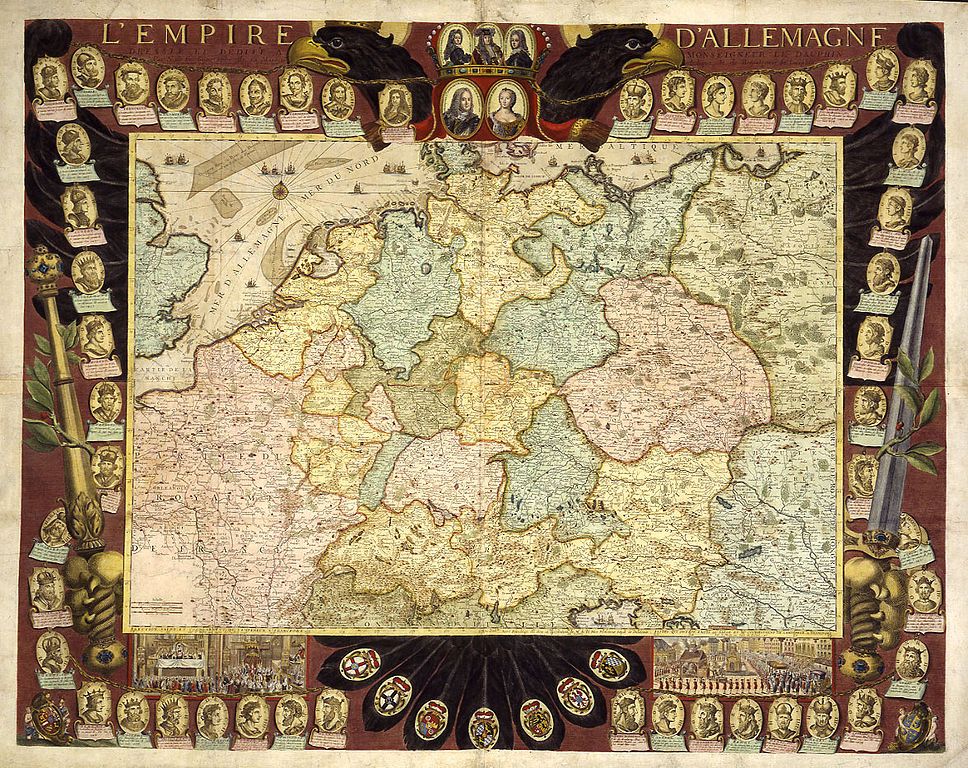
Conduct and Borders in the Early Modern Holy Roman Empire
A project by LUCA SCHOLZ, European University Institute
Envisaging borders as instruments for the dominion of movement, this research project examines the symbolic and factual control exercised by the fragmented polities of the Holy Roman Empire over the movement of goods and people during the late sixteenth and seventeenth centuries. In the splintered political landscape between the Alps and the North Sea, control over moving goods and people was a permanent object of contention between competing authorities, communities and travellers.
Such conflicts were often framed as matters of “conduct” (Geleit), a term denoting the quasi-sovereign right to escort travellers and to levy customs duties on passing goods and people. Ostensibly, the physical escorting of foreign princes, diplomats, merchants, prisoners or corpses through a given territory was an act of protection and of honour. In practice, however, a lord who granted safe conduct always stated his territorial supremacy and its boundaries. Thus, conduct was rather a matter of asserting territorial prerogatives or producing fiscal revenues than a means of facilitating travel. Indeed, although only certain forms of movement were subject to regulation, princely officers and patrols constituted a considerable obstacle for the unhampered movement on the roads and rivers traversing the patchwork Empire.
Using court records, letters of passage, visual sources, administrative correspondence as well as scholarly treatises, this project explores how, why and to what extent authorities attempted to master various forms of movement through their dominions. Often patchy and inadequate, such attempts at “monopolising the legitimate means of movement” (John Torpey) clashed at more or less open forms of resistance from the side of those to be controlled and prompted erudite debates around freedom of movement and its restriction. The physical, symbolic and intellectual conflicts occasioned in this context thus inform us about the fundamental controversiality of this early grasp on human mobility and the selective and performative nature of its boundaries.
Luca Scholz is a doctoral candidate in History at the European University Institute under the supervision of Jorge Flores (EUI) and Christophe Duhamelle (EHESS Paris). He holds a B.A. in Political Economy from the University of Heidelberg and a joint M.A. in History from that same university and the École des hautes études en sciences sociales in Paris. Currently, he is a visiting scholar at Columbia University. His wider interests bear on the social, intellectual and cultural history of early modern Europe, spanning the history of serfdom, the history of economic thought, legal and conceptual history, political theory, the integration of micro- and macro-perspectives in history and its uses in the present.
For more information, please visit www.eui.academia.edu/LucaScholz